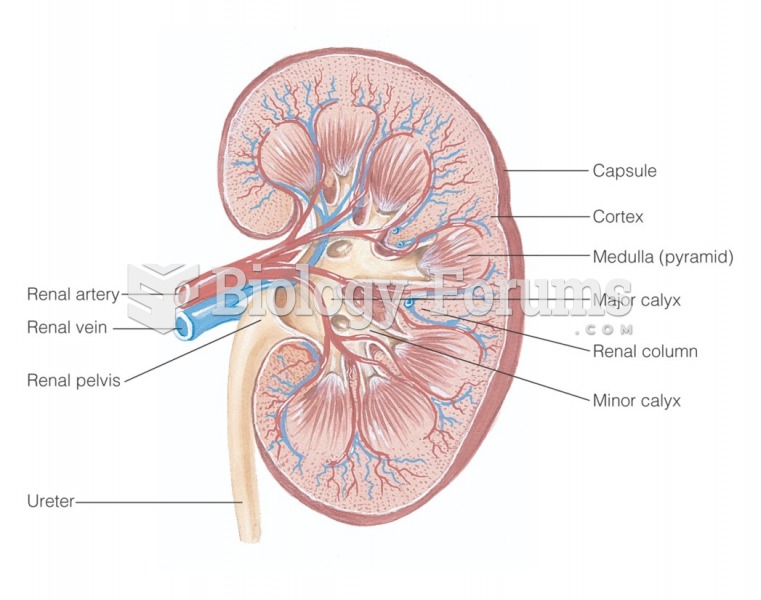|
|
|
There are over 65,000 known species of protozoa. About 10,000 species are parasitic.
The ratio of hydrogen atoms to oxygen in water (H2O) is 2:1.
About 60% of newborn infants in the United States are jaundiced; that is, they look yellow. Kernicterus is a form of brain damage caused by excessive jaundice. When babies begin to be affected by excessive jaundice and begin to have brain damage, they become excessively lethargic.
Hip fractures are the most serious consequences of osteoporosis. The incidence of hip fractures increases with each decade among patients in their 60s to patients in their 90s for both women and men of all populations. Men and women older than 80 years of age show the highest incidence of hip fractures.
About 3% of all pregnant women will give birth to twins, which is an increase in rate of nearly 60% since the early 1980s.







